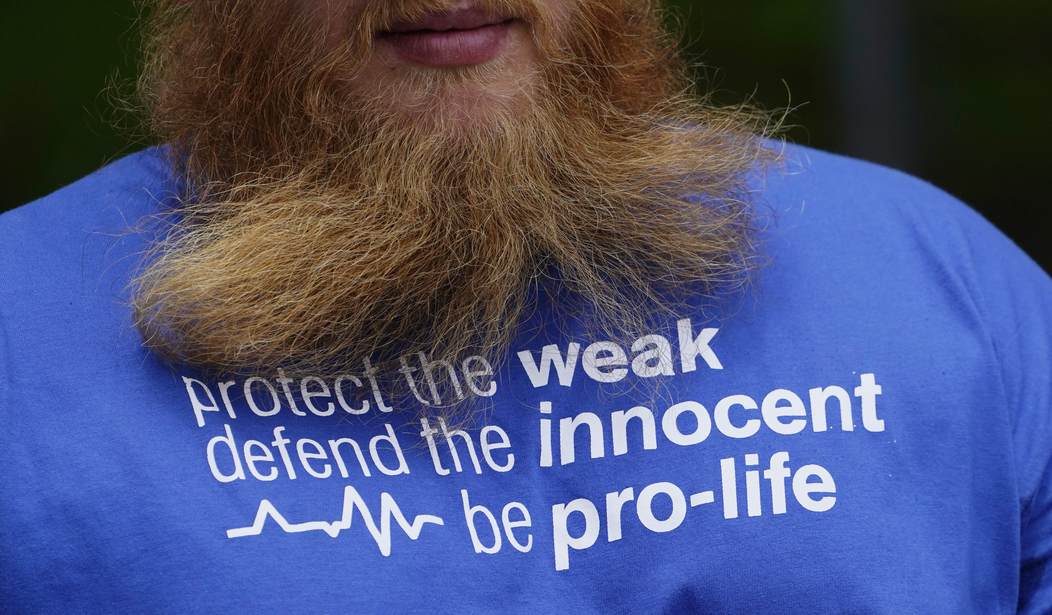Editor's note: The following is an excerpt from "What to Say When" by Shawn Carney and Steve Karlen.
What Not to Say
Meaningful conversations, whether they go well or not, leave us thinking later, “I wish I would have said this” or “I wish I would have thought of that.” In such polarizing times, wording is important and saying the wrong thing could derail a conversation--especially when discussing sensitive conversations like abortion.
The points we shouldn’t make, that don’t advance the conversation in a grace-filled way, will do the opposite. They can concede ground (without us even realizing it) or convey disrespect toward those we’re debating. That’s why it’s essential to consider what not to say when abortion comes up (we’ve said all of these and learned our lesson to prevent you from making the same mistake).
Point 1: “We Believe Life Begins at Conception”
No, we don’t.
Our personal beliefs are irrelevant to abortion-minded women, abortion doctors, pro-choice voters, Planned Parenthood workers, and abortion supporters, who simply do not care about what we do or do not believe.
Fortunately, we don’t need tobelievelife begins at conception the way our ancestors did. The early Christians had tobelievelife begins at conception. The flat earthers of the Middle Ages had tobelievelife begins at conception. Great minds and leaders throughout history—including Charlemagne, Constantine, Robert the Bruce, Pocahontas, and General George Washington—all had tobelievethat life begins at conception.
But we don’tbelievelife begins at conception; weknowit does.
That life begins at conception is a verifiable scientific fact that is taught in medical schools, written about in peer-reviewed medical journals, described in embryology textbooks, and, today, filmed with cameras and shown byNational Geographic.
Recommended
Belief has nothing to do with it. Life begins at conception. Period.
Point 2: “The Baby Could Become the Next . . . .”
Almost every pro-life person has imagined a baby destined for abortion could be the one who cures cancer, becomes the first woman president, or saves the rainforest.
As pro-lifers, we value the right to life over perceived quality of life. We value people for their existence as fellow human beings—not because of what they contribute to society. Our arguments should reflect those values.
Abortion is equally tragic whether the child aborted is destined for greatness, for obscurity, or for suffering. We understand the interest in sensational stories, but the source of our value isn’t our achievements but because each of us is a gift from God. She doesn’t need to be the next Beethoven; she only needs to be who God made her to be. Whether your kid is at the top of his class or a dropout, he is loved, cherished, and unrepeatable.
Point 3: “Rape Accounts for Only 1 Percent of All Abortions”
Ouch.
We hear this argument a lot. Even reading this book, you may be tempted to say, “But come on; rape literally accounts for 1 percent of all abortions,1and it is used to justify 73 million abortions around the world every year. People think most women having abortions are rape victims, and we need to correct that.”
If so, you’re not wrong. But when you dismiss abortion in cases of rape, you’re conceding too much ground.
When an abortion advocate responds, “What if rape accounted for 100 percent of all abortions?” you’re forced to go on defense. You’ve unnecessarily backed yourself into a corner and lost an opportunity to force the abortion supporter to defend killing defenseless children. Furthermore, you’ve unintentionally suggested a disregard for women who suffer the trauma of sexual assault. The abortion advocate will eat you alive.
Point 4: “If a Woman Doesn’t Want a Baby, She Should Practice Safe Sex”
You might as well say, “She should keep her legs closed!” and storm out of the room.
This argument is counterproductive on multiple fronts.
First, the “safe sex” argument is fundamentally flawed because it suggests contraception as a solution to abortion.
Secondly, this argument lets men off the hook. “It takes two to tango,” as the saying goes. Many abortions aren’t the result of a woman who doesn’t want a baby but of a father who doesn’t want a baby and pressures or even forces his girlfriend or wife into aborting.
Third, this argument blames the woman for a past decision—and one she can no longer reverse. The safe sex ship has sailed, and there’s no time machine that can allow her to go back and avoid becoming pregnant.
The abortion-minded woman is pregnantnow.She needs helpnow, not advice about what she should have done seven weeks ago.
Point 5: “Late-Term Abortion Is Worse Than Early Abortion”
Yes, late-term abortion is barbaric. So are all other abortions.
When we start discussing gestational limits on abortion, we (unintentionally) suggest there is a point in pregnancy at which we are comfortable with a baby being violently torn apart.
Early abortions might not be asmessyas late-term abortions, but they are no less deadly.
We have helped and consoled thousands of women who have had abortions. Almost all of them knew how far along they were at the time of the abortion. None of them claimed that the age of their baby made their abortion any easier or harder to live with afterward.

























Join the conversation as a VIP Member